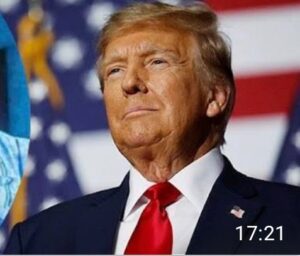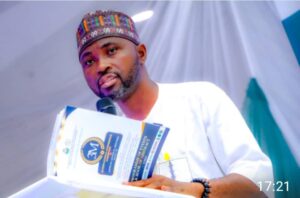

By Afolabi Mustapha Wale.

President Donald Trump.
When news broke that the United States, under Donald Trump’s renewed political influence, had tagged Nigeria as “a country of particular concern” and was considering intervention over alleged violence against Christians, many Nigerians cheered. Some even saw it as a long-awaited rescue mission. But be careful what you wish for.

The author.
Those applauding Washington’s threat of “military aid” may not fully grasp how international politics truly works. Nations like the U.S. do not intervene for charity—they move where their interests are threatened or where resources promise strategic advantage. The language of “human rights” and “religious freedom” often masks deeper geopolitical motives.
History bears painful testimony to this pattern. Libya, Iraq, and Syria all welcomed America’s “help” at some point—and today, they remain fractured nations struggling with chaos and loss. Libya, once Africa’s most prosperous state under Muammar Gaddafi, is now a shadow of itself—a playground for warlords and proxy powers. The same United States that claimed to liberate it has long left it in ruins.
So, when America suddenly remembers Nigeria in the name of “Christian persecution,” Nigerians must ask: what has Washington seen or feared in our recent trajectory? Could it be our emerging economic resilience, or the discovery of new natural resources that may reduce our dependence on Western powers? Or is it simply an old colonial reflex—the instinct to control what they cannot comprehend?
Like the Rector of Kogi State Polytechnic, Prof. Salisu Ogbo Usman, once said after parading forgery suspects: “We are not after the users of fake results, but the syndicate masterminding the operation.” In the same way, Nigerians must look beyond surface narratives. We should ask,what’s the real game? Who benefits when our sovereignty is undermined in the name of protection?
No doubt, Nigeria faces real security challenges,banditry, insurgency, kidnappings,but these are not confined to one religion or tribe. Muslims, Christians, and others alike have suffered the same pain. Turning our tragedy into a religious weapon serves only political interests, both foreign and local. It divides us further and weakens our national will to confront the real enemies—the criminals and their sponsors.
The solution does not lie in foreign boots on Nigerian soil. It lies in strengthening our military institutions, deepening intelligence cooperation, and fostering unity across ethnic and religious lines. Direct foreign intervention, especially by powers with a record of self-serving missions, will only sow deeper chaos.
We must also learn from nations that stood firm against external manipulation. They invested in their people, backed their soldiers, and redefined patriotism as a daily civic duty. Nigeria must do the same. Let’s give the new Service Chiefs and our security agencies a fair chance to prove their capacity. Let’s support them with information, cooperation, and confidence.
As my mentor, Mr. Bayour Isaac, often reminds us on radio: “Nigeria is greater than any person or group. Don’t be a saboteur,join hands to make it great.”
Indeed, Nigeria may be struggling, but it is not defeated. Our destiny must never again be decided in Washington, London, or Paris. It must be shaped here,by Nigerians who believe in Nigeria.
Nigeria will rise again. Ameen.


